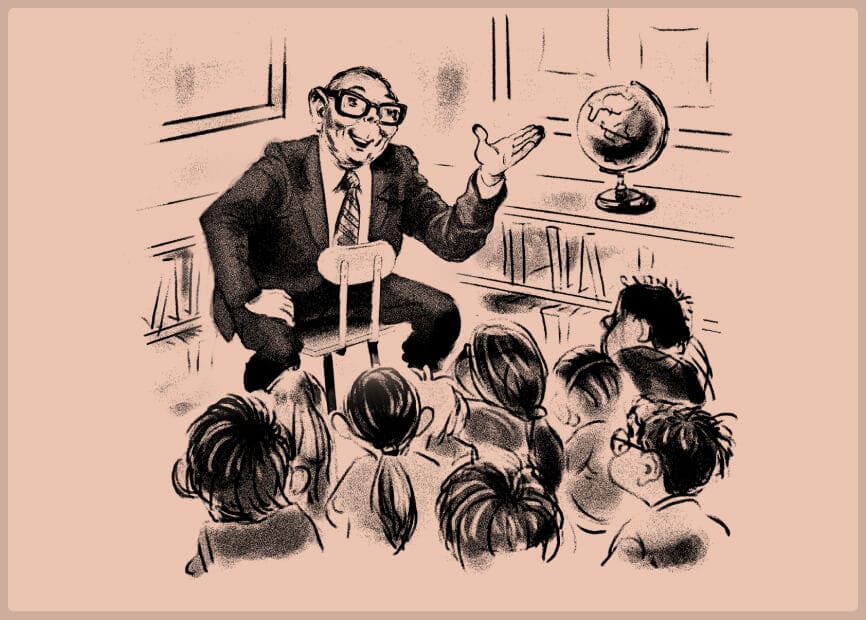Poor Charlie's Almanac: Part 2

In my last article, I mentioned that I’d continue sharing insights from Charlie Munger’s Poor Charlie’s Almanack. Today, I want to dive into some of his timeless advice, highlighting ideas he shared in a 2007 speech. These lessons helped shape his remarkable success and influence, but more importantly, they carry the kind of wisdom that can improve anyone’s life—if we take them to heart.
Now, not every piece of advice will resonate with you. And that’s okay. But I hope that at least one of these lessons stands out and makes a lasting impact.

The safest way to get what you want is to deserve what you want.
This is one of those deceptively simple truths that many people overlook. Charlie’s advice boils down to this: Deliver to the world what you’d want to receive if you were on the other end.
It’s not just about achieving success—whether that’s financial, professional, or personal. Living this way builds something far more valuable: trust and respect. And when people trust you, life tends to reward you in ways you can’t always predict.
Charlie shared a vivid example of what happens when you don’t live this way. He told the story of a funeral where, after the minister asked attendees to say something kind about the deceased, there was an awkward silence. Eventually, someone stood up and said, “Well, his brother was worse.” That’s not the legacy any of us want to leave behind.
At its core, this lesson reminds us that living with integrity and delivering real value doesn’t just lead to success—it makes life more meaningful.

Wisdom Is a Moral Duty
If there’s one thing that sets Charlie and Warren Buffett apart, it’s their commitment to continuous learning. Berkshire Hathaway’s unmatched track record didn’t come from sheer talent alone. It came from a willingness to adapt, evolve, and grow.
As Charlie puts it, the skills that carry you through one phase of life won’t necessarily help you in the next. To succeed, you have to keep learning.
The best part? You don’t need to be the smartest person in the room or the hardest worker. You just need to commit to going to bed a little wiser than you were that morning. Over time, that small habit gives you an edge that’s hard to beat.
Avoid Intense Ideology
In today’s world, it’s easy to get swept up in extreme ideologies. But Charlie warns that this kind of thinking is a surefire way to ruin the only mind you’ll ever have.
His advice? Don’t hold an opinion unless you can argue the other side better than its strongest advocates. Only then are you qualified to take a position?
This approach doesn’t just make you a better thinker—it keeps you humble. And humility, as Charlie often emphasizes, is a hallmark of true wisdom.
4. Don’t Overspend Your Income
Charlie told a story about Mozart, one of the greatest composers in history, who was famously miserable for much of his life. Why? Because he couldn’t live within his means.
As Charlie bluntly puts it, “If Mozart couldn’t get away with that kind of foolish conduct, I don’t think you should try it either.”
The lesson here is simple: financial discipline is key to freedom and happiness. No amount of talent or success can compensate for poor financial habits.
5. Avoid Self-Pity
Of all the mental traps we fall into, self-pity might be the most destructive. It’s a cycle that feeds on itself, and once you’re in it, it’s hard to climb out.
Charlie suggests a humorous antidote. He once had a friend who carried cards that read, “Your story has touched my heart. Never have I heard of anyone with as many misfortunes as you.” Anytime you feel sorry for yourself, imagine handing yourself one of those cards.
Self-pity doesn’t solve problems—it just holds you back. By avoiding it, you gain an edge over most people, who spend far too much time indulging in it.
Overcoming Self-Serving Bias: Lessons from Salomon Brothers and the Power of Incentives
One piece of wisdom that Charlie shared that caught my attention was Self-serving bias It is something we all face, whether we realize it or not. It’s that tendency to see events in a way that favors ourselves. When things go well, we say, “Of course, that was my hard work and talent.” When things fall apart, though, we look outward—blaming bad luck, poor leadership, or someone else entirely. It’s human nature, but it’s also dangerous. This mindset doesn’t just distort reality; it holds us back from learning, growing, and making better decisions.
If we’re serious about thinking clearly and acting wisely, we have to start by addressing this bias within ourselves. Let’s be honest—it’s easy to justify actions that align with our self-interest. We convince ourselves they’re also the right thing to do. But real wisdom requires more than that. It demands that we not only catch ourselves in these moments but also recognize the same bias in others.
Most people won’t overcome self-serving bias, and that’s where things get tricky. If you fail to account for it in their behavior, you’re setting yourself up for disappointment—or worse, failure.
Take the story of Salomon Brothers, for example. At the height of its power, the firm had a reputation for brilliance and boldness. But that didn’t save it from its downfall, and the root of the issue was classic human error: self-serving bias and poor incentives.
The firm’s general counsel, a sharp and principled lawyer from Harvard Law Review, discovered that one of Salomon’s traders had engaged in misconduct. Naturally, he advised the CEO, John Gutfreund, to come clean with regulators—not because it was legally required, but because it was the ethical thing to do. The advice was sound, but his approach wasn’t. He appealed to logic and morality, but he missed the one thing that might’ve moved the needle: Gutfreund’s self-interest.
The CEO procrastinated—not out of ill intent, but because addressing the issue was uncomfortable. When regulators eventually uncovered the misconduct, the delayed response cost Salomon dearly. Both Gutfreund and the general counsel lost their careers.
This wasn’t just a cautionary tale about ethics. It was a lesson in understanding how people really operate. As Benjamin Franklin once said, “If you would persuade, appeal to interest, not to reason.” Had the counsel framed his advice differently—pointing out the risk to Gutfreund’s career, reputation, and legacy—the outcome might have been very different.
The truth is, that self-interest drives most decisions, even when noble intentions are in play. It’s not something to be bitter about—it’s something to understand and use wisely.
This idea extends beyond individuals to the systems we work within. Perverse incentives—those that reward harmful behavior—are particularly dangerous. Consider law firms that enforce high billable-hour quotas. Sure, they rake in profits, but at what cost? Attorneys are pushed to exhaustion, the quality of work suffers, and values erode. Personally, I’d never tolerate such a setup. The systems you choose to align with will shape your behavior in ways you might not even notice, so it’s crucial to pick carefully.
And that brings me to the people you work under. Authority figures wield more influence than we often acknowledge, especially those who control your rewards and opportunities. Over time, their values can start to rub off on you—for better or worse. That’s why it’s so important to work under people you respect and admire.
If you find yourself in a situation where the leadership doesn’t align with your principles, walking away might feel daunting, but it’s the best move you can make. It takes courage to leave, but it takes even more courage to stay and lose yourself in the process.
At the end of the day, overcoming self-serving bias and navigating these challenges comes down to awareness and discipline. You can’t escape bias entirely, but you can learn to manage and surround yourself with it. And if you with the right people, align with systems that reinforce your values, and keep incentives in check, you’ll set yourself up for a life that’s not only successful but meaningful.

Charlie Munger’s wisdom is timeless because it’s grounded in principles that transcend trends and circumstances. Whether it’s about living with integrity, committing to lifelong learning, or overcoming the mental traps that hold us back, his advice offers a blueprint for a better, more meaningful life.
These lessons aren’t just about achieving success—they’re about becoming the kind of person who earns it. So, take a moment to reflect: Which of these ideas resonated with you the most? More importantly, how can you apply it to your own life?
As Charlie himself might say, the best way to honor wisdom is to put it into practice. The real magic happens when knowledge turns into action.